Table of Contents
Influence of Rousseau on Contemporary Education:
Rousseau greatly contributed to the theory and practice of education. In the words of R.H. Quick, “Rousseau did in the world of ideas what French Revolutionists afterwards did in the world of politics, he made a clean sweep and endeavoured to start afresh”. He wanted reform and revolution in the field of education. He denounced the old and showed the new. He influenced many educators of the 19th and 20th centuries. In the words of Munro, Rousseau lighted a path on which the future educators of the universe were to travel. He advocated three important tendencies in education- Psychological Tendency, Sociologist Tendency and Scientific Tendency.
Psychological Tendency:
Rousseau was the forerunner of modern psychology because he emphasized the following psychological principles-
Individual Differences- Rousseau recognized individual differences among children. He stated that no two individuals are alike. Every individual has his own qualities. Hence education should be as individualistic as possible. Curriculum-centred education was replaced by child-centred education.
Developmental Stages- Rousseau emphasized the importance of developmental stages and held that each stage has its own characteristics. Education, according to Rousseau, should be planned according to the developmental stages of the individual which are four in number i.e. infancy, childhood, boyhood and adolescence.
Natural endowments of the Child- Rousseau remarked, “Education should be planned according to natural endowments of the child”. Every child has certain native interests and tendencies. Educators should try to find out these interests and tendencies and encourage their fullest development.
Education by Judgement and Reason- Rousseau emphasized education by judgement and reason rather than by memory. He allowed the freedom for the child to form his own judgement based on his own reasoning.
Scientific Tendency:
It was on account of Rousseau’s movement that scientific tendencies were given importance in education-
Scientific Approach- Rousseau emphasized the scientific approach. He stated that the child should properly understand the why and wherefore of knowledge. Rousseau asserted observation of nature and advocated that the child should be given an opportunity to observe various facets of nature. Knowledge gained through the scientific approach becomes a part and parcel of a child’s life. The child studies geography by observing natural phenomena. Here the scientific approach is proceeding from local to national geography.
Heuristic Method-Rousseau recommended the use of the heuristic method. In this method, the child is put in the position of a discoverer. Rousseau said, “Put the problems before him and let him solve them himself. Let him know nothing because you have told him, but because he has learnt for himself. Let him not be taught science, let him discover it”.
If scientific tendency has importance in education today, the credit very much goes to Rousseau and his treatise ‘Emile’.
Sociological Tendency:
Besides psychological and scientific tendencies, Rousseau also laid the foundation for sociological tendencies in modern education. In the words of Rousseau education should prepare the individual to live in society. In his ‘Emile’ we find the seeds of human welfare. He clearly talked about sympathy, co-operation, working together and benevolence to all. Present-day emphasis on vocational education and moral instruction find their root in Emile.
Thus we find that all these three tendencies find a place in educational principles advocated by Rousseau. The impact of Rousseau is clearly visible in other fields of education as well-
New concept of Education- Rousseau discarded the old concept of education which aimed to provide factual knowledge to the child and force upon the traditional way of thinking and doing. He gave a new meaning to education in the words, “Education is an organic growth, it is a development from within”. It plans for the development of the inner capacities of the child. It starts from infancy and continues till death. With him all educative effort was to start from instinctive tendencies and was to be based upon the same.
Rights of childhood- One of the most important contributions of Rousseau is his assertion that the child is a positive factor in education. In the words of Rousseau, “Children should be considered as children before they are adults”. Hence they have a special claim on the educator. Rousseau believed in the rights of childhood. On the contrary, the traditional educators considered the child as an adult in making and forced him to accept adult ways and behaviour.
New methods of Teaching- Rousseau advocated the following new methods of teaching-
- Activity Method- Rousseau was the harbinger of activity method. He said, “Lessons of youngmen should be given in action rather than in words”.
- Heuristic Method- Rousseau was the fore-runner of the heuristic method. In the words of Rousseau, “Put the problems before him (child) and let him solve them himself”.
- Education through concrete objects- Rousseau advocated that the child should be educated through concrete things rather than abstract signs and symbols. The modern tendency is to use audio-visual aids and to minimize the importance of text-books and fromal lessons.
Modern Curriculum-Rousseau included physical sciences, social relations and a trade in his scheme of studies. This was a new approach in the field of curriculum construction which had been ignored by the traditionalists. It is due to Rousseau’s influence that we today give sufficient importance to the physical health of the pupils. The traditional system ignores this aspect of education. Rousseau stated that science was to be taught with a view to inculcate the scientific spirit, while trade was to be taken to develop the dignity of labour.
Free and Positive Discipline- Rousseau did not believe in ‘Spare the rod and spoil the child’. He condemned coercion which destroys the originality and intellectual interests of the child. He held that discipline should be such which may touch the inner springs of human actions. For this type of discipline, freedom is essential. According to Rousseau, free discipline will ensure the maximum development of the child.
Educator of Educators- It is an admitted fact that great educators of the world like Pestalozzi, Froebel, Montessori, Dewey, Herbert and Gandhi have been influenced by the writings and contributions of Rousseau.
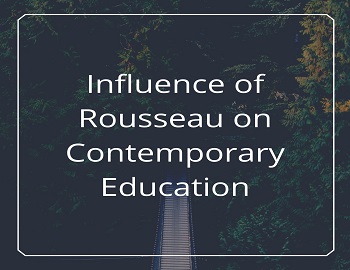
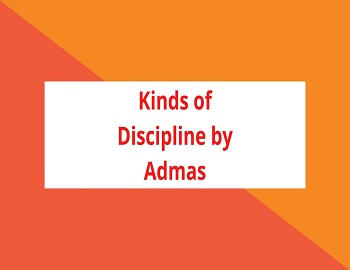
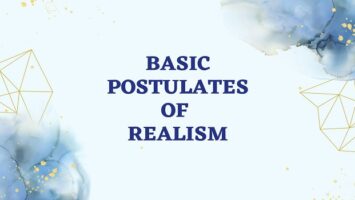
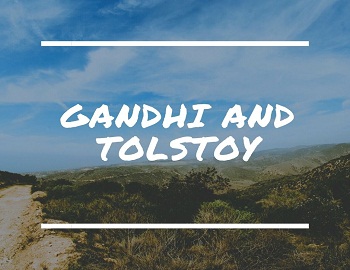



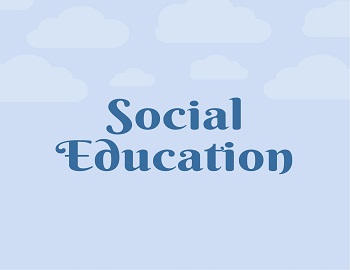
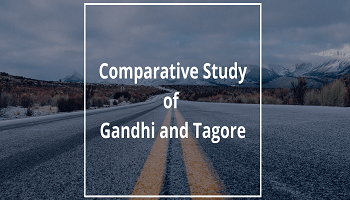
Comments (No)